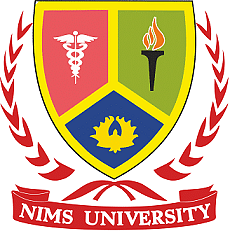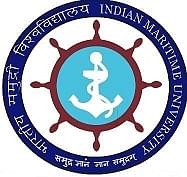Introduction about Ph. D in Nursing
A Ph.D. in Nursing from best college is a prestigious and
rigorous academic program designed to prepare nurse scholars, researchers,
educators, and leaders who can contribute significantly to the advancement of nursing
science and practice. This terminal degree in nursing offers an in-depth
exploration of various aspects of healthcare, including patient care, health
promotion, healthcare policy, and the social determinants of health.
Individuals
pursuing a Ph.D. in Nursing typically possess a strong foundation in nursing
practice and theory, as well as a passion for inquiry and scholarly
exploration. The program emphasizes research methodologies, critical thinking,
and the development of advanced nursing knowledge to address complex healthcare
challenges.
Ph.D. students in
Nursing engage in coursework, research, and scholarly activities aimed at
advancing the science and practice of nursing. They may explore diverse topics
within nursing research, such as healthcare disparities, chronic disease
management, healthcare innovation, nursing education, and healthcare policy.
Throughout the
program, students work closely with faculty mentors and research teams to
conduct original research, publish scholarly articles, and present their
findings at conferences. The ultimate goal of a Ph.D. in Nursing is to produce
nurse scholars who can contribute to the generation of new knowledge, the
development of evidence-based nursing practice, and the improvement of
healthcare outcomes for individuals, families, and communities.
Graduates of Ph.D.
programs in Nursing pursue diverse career paths, including academic positions
in universities, leadership roles in healthcare organizations, research
positions in government agencies or research institutions, and consultancy
roles in healthcare policy and practice. Their expertise and contributions play
a vital role in shaping the future of nursing and healthcare delivery,
ultimately leading to better patient care and improved population health.
What is admission process for Ph. D in Nursing?
The admission process 2024 for a Ph.D.in Nursing typically
involves several steps, which may vary slightly depending on the institution
and program requirements. Here's a general overview of the typical admission
process:
§ Research Programs and Institutions: Begin by researching universities and
institutions offering Ph.D. programs in Nursing. Consider factors such as
program reputation, faculty expertise, research focus areas, and resources
available for doctoral students.
§ Review Admission Requirements: Carefully review the admission
requirements for each program you're interested in. Common requirements may
include:
§ A master's degree in nursing (or a related
field) from an accredited institution.
§ A current, unrestricted registered nurse
(RN) license.
§ Minimum GPA requirements for previous
graduate coursework (usually around 3.0 on a 4.0 scale).
§ Professional experience in nursing or
related healthcare fields (varies by program).
§ Submission of standardized test scores (such
as the GRE) may be required by some programs, although this requirement is
becoming less common.
§ Prepare Application Materials: Gather all required application materials,
which typically include:
§ Completed application form (submitted online
or by mail).
§ Official transcripts from all previous
colleges and universities attended.
§ Letters of recommendation (usually from
academic or professional references who can speak to your qualifications and
potential for success in a doctoral program).
§ Statement of purpose or personal statement
outlining your research interests, career goals, and reasons for pursuing a
Ph.D. in Nursing.
§ Curriculum vitae (CV) or resume highlighting
your academic and professional achievements.
§ Writing samples or scholarly papers (if
applicable).
§ Proof of RN licensure (if not included on
transcripts).
§ Submit Applications: Complete and submit your applications by
the specified deadlines. Pay close attention to any additional requirements or
supplementary materials requested by each program.
§ Interviews (if applicable): Some programs may require interviews as
part of the admission process. If selected, be prepared to discuss your
research interests, academic background, and career aspirations with faculty
members or admissions committee members.
§ Wait for Decisions: After submitting your applications, you'll
need to wait for admission decisions from the programs to which you applied.
This process can take several weeks to several months, depending on the
institution.
§ Acceptance and Enrollment: If accepted, you'll receive an acceptance
letter outlining any next steps, such as confirming your intent to enroll,
securing funding (if applicable), and completing any additional requirements
for enrollment.
It's essential to
carefully review the specific admission requirements and deadlines for each
program you're interested in to ensure you submit a complete and competitive
application. Additionally, reaching out to program coordinators or admissions
offices with any questions can provide valuable insight into the application
process and help you make informed decisions.
What is eligibility for Ph. D in Nursing?
The eligibility criteria for Ph.D. in Nursing can
vary depending on the specific program and institution. However, here are some
common eligibility factors:
Educational
Background: Typically,
applicants should hold a master's degree in nursing (MSN) from an accredited
institution. Some programs may accept applicants with a master's degree in a
related field, such as public health or healthcare administration, especially
if they have significant nursing experience.
Professional
Experience: While not
always mandatory, many Ph.D. in Nursing programs prefer applicants who have
relevant professional experience in nursing or related healthcare fields. This
experience can demonstrate your commitment to the field and provide valuable
insights for your doctoral studies and research.
Licensure: Most Ph.D. in Nursing programs require
applicants to hold a current, unrestricted registered nurse (RN) license. This
ensures that applicants have the necessary clinical background and
qualifications to pursue advanced doctoral studies in nursing.
Academic
Performance: Applicants are
typically expected to have a strong academic record, including a competitive
grade point average (GPA) in their master's-level coursework. While specific
GPA requirements may vary, a minimum GPA of around 3.0 on a 4.0 scale is
common.
Standardized Test
Scores (if required): Some
programs may require applicants to submit scores from standardized tests, such
as the Graduate Record Examination (GRE). However, this requirement is becoming
less common in Ph.D. in Nursing admissions. Be sure to check the specific
requirements of each program you're interested in regarding standardized tests.
Letters of
Recommendation: Most
programs require letters of recommendation from academic or professional
references who can speak to your qualifications, achievements, and potential
for success in doctoral studies. These letters typically come from professors,
supervisors, or colleagues who are familiar with your work.
Statement of
Purpose: Applicants are
usually required to submit a statement of purpose or personal statement
outlining their research interests, academic background, career goals, and
reasons for pursuing a Ph.D. in Nursing. This statement provides an opportunity
to demonstrate your passion for nursing research and how you align with the
program's objectives.
Interviews (if
required): Some programs
may require applicants to participate in interviews as part of the admission
process. This allows admissions committees to assess applicants' fit for the
program and their potential for scholarly research in nursing.
It's essential to
carefully review the specific eligibility requirements of each Ph.D. in Nursing
program you're interested in to ensure you meet all criteria before applying.
Additionally, reaching out to program coordinators or admissions offices can provide
clarification on any questions you may have regarding eligibility.
What is syllabus for Ph. D in Nursing ?
The syllabus for Ph.D. in Nursing
can vary significantly depending on the institution, program structure, and
specific research interests of faculty members. However, here is a general
overview of potential topics that may be covered in the coursework and research
components of a Ph.D. program in Nursing:
§ Core Nursing Theory and Philosophy:
§ Advanced Nursing Theory: Exploration of
nursing theories and conceptual frameworks relevant to advanced nursing
practice, research, and education.
§ Philosophical Foundations of Nursing:
Examination of the philosophical underpinnings of nursing practice, including
ethics, values, and professional identity.
§ Research Methods and Design:
§ Quantitative Research Methods: Introduction
to quantitative research methodologies, including experimental designs, survey
research, and statistical analysis techniques.
§ Qualitative Research Methods: Exploration of
qualitative research methodologies, such as phenomenology, grounded theory, and
ethnography, focusing on data collection, analysis, and interpretation.
§ Mixed Methods Research: Integration of
quantitative and qualitative research approaches, emphasizing the strengths and
limitations of each method and strategies for combining them effectively.
§ Advanced Research Design: In-depth study of
research design principles, including issues of validity, reliability,
sampling, and measurement in nursing research.
§ Statistical Analysis and Data
Management:
§ Advanced Statistical Analysis: Application
of advanced statistical techniques to analyze complex healthcare data,
including multivariate analysis, longitudinal data analysis, and structural
equation modeling.
§ Data Management and Informatics: Strategies
for managing and analyzing large datasets in nursing research, including data
collection, storage, cleaning, and interpretation.
§ Health Policy and Systems Leadership:
§ Health Policy Analysis: Examination of
healthcare policy development, implementation, and evaluation at local,
national, and global levels, with a focus on nursing's role in shaping health
policy.
§ Health Systems Leadership: Exploration of
leadership theories and principles relevant to nursing practice and healthcare
delivery, including organizational behavior, change management, and quality
improvement.
§ Specialized Nursing Topics:
§ Advanced Pathophysiology and Pharmacology:
In-depth study of pathophysiological processes and pharmacological
interventions relevant to advanced nursing practice and research.
§ Advanced Practice Nursing Roles: Exploration
of advanced practice nursing roles, such as nurse practitioner, clinical nurse
specialist, nurse midwife, and nurse anesthetist, focusing on scope of
practice, regulations, and professional standards.
§ Population Health and Epidemiology: Analysis
of population health issues, epidemiological methods, and strategies for
promoting health equity and addressing healthcare disparities.
§ Teaching and Mentorship in Nursing:
§ Teaching Strategies in Nursing Education:
Development of effective teaching strategies for undergraduate and graduate
nursing education, including curriculum design, instructional methods, and
assessment techniques.
§ Mentorship and Professional Development:
Training in mentorship skills, including mentor-mentee relationships, career
development, and professional networking in nursing academia and practice.
§ Dissertation Research:
§ Dissertation Proposal Development: Guidance
and support in developing a research proposal for the doctoral dissertation,
including literature review, research questions, methodology, and timeline.
§ Dissertation Data Collection and Analysis:
Conducting original research under the supervision of a faculty mentor,
including data collection, analysis, and interpretation.
§ Dissertation Writing and Defense:
Preparation of the doctoral dissertation manuscript and oral defense before a
committee of faculty members and peers.
§ It's important to note that the specific
courses and research experiences offered in a Ph.D. program in Nursing may vary
between institutions. Students are often encouraged to work closely with their
academic advisors and dissertation committees to tailor their coursework and
research experiences to their individual interests and career goals.












